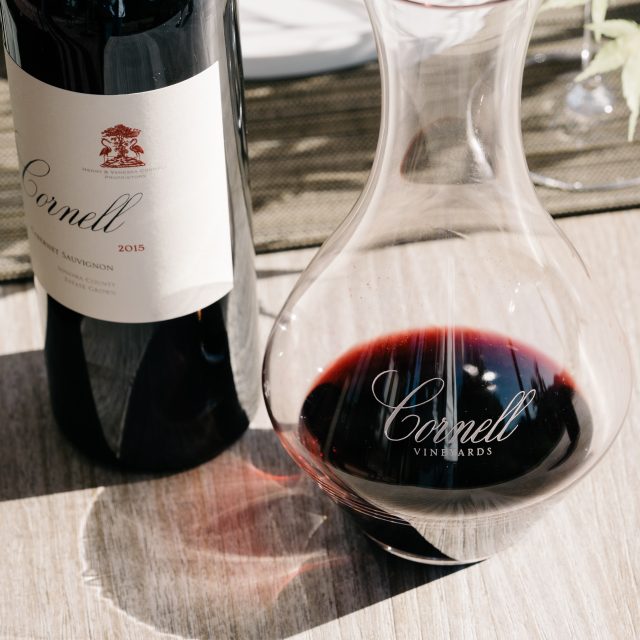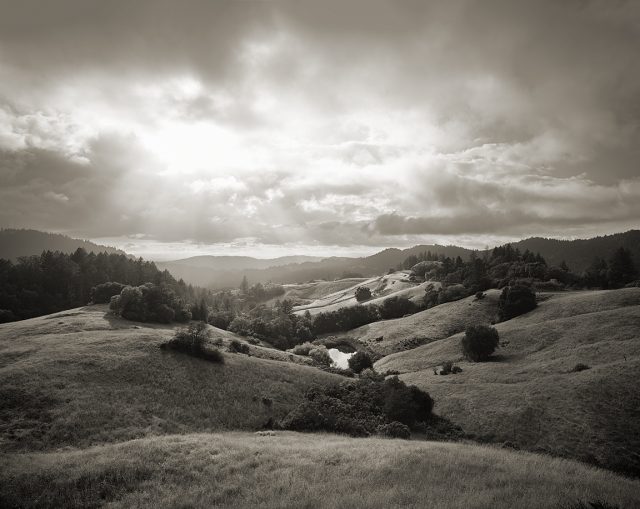Why a supply-constrained Sonoma wine wants to be in the UK
Using organically-grown grapes from a pre-prohibition wine estate on the Sonoma side of the Mayacamas mountain range, the high-scoring wines of Cornell Vineyards are a sell-out in the US – so why is it bothering with the UK?

That’s the question I put to the property’s owner, Henry Cornell, when speaking with him last month, following his decision to assign Pol Roger Portfolio as the first importer to bring Cornell’s wines to British shores.
Half-joking, Henry was quick to answer, commenting, “I like to build on the tradition of Roosevelt and Churchill,” referring to the ‘special relationship’ between the US and UK that can be traced back to the close bond formed by the nations’ statesmen during World War II.
But on a more serious note, his desire to see his wines distributed in the UK stems from both his deep affection for the country, and his belief that Cornell’s style of Cabernet suits the British palate.
Speaking on behalf of his wife Vanessa – who works closely with him at Cornell – Henry told db, “We are Anglophiles,” before explaining that his love for the UK followed a stint working in London from 1981-82 when he was a young lawyer.
Although it was a New York firm, it had a London office, where the 25-year-old Henry was posted, living in Kensington, and enjoying life in the city during the Thatcher years. “I was living off Rutland Gate and I used to run around Hyde Park; I was the only one there in the morning – and that’s certainly changed,” he recorded.
Continuing he assured db that the other end of the day was less about fitness and more about fun, commenting “And I enjoyed London nightlife”, describing the period as a “dream come true.”
As for the stylistic suitability of Cornell’s wines for the British drinker, Henry believes it stems from a decision to craft wines from his mountain site in a manner that is “very Bordelaise.”
Noting that Cornell works with “all the Bordeaux varieties”, he said, “We are not looking for high extraction or high alcohol, but balanced wine, with acid,” before commenting, “The palate in the UK is tipped more towards the Bordeaux style, but doesn’t mind the Californian sunshine in their fruit.”
He added, “The palate in the UK is very approving of the newer style of California, which is frankly the older style, when, in the 50s and 60s, alcohol levels were 12%.”
Vanessa concurred, telling db, “We are on the Sonoma side of the Mayacamas mountain range, and our site gives us the opportunity to achieve ripeness without too much sweetness, and our farming and winemaking is done to make a balanced wine you can drink with food.”
In terms of the approach, Cornell is certified organic, and “adheres to lots of the principles of biodynamics”, while “the farming is regenerative”, and “we are focused on the entire ecosystem around the vineyards, because we believe in stewarding the land, and we believe that leads to better wine,” said Henry.
As for the estate, Cornell is located on the western side of the Mayacamas mountain range in Sonoma County – just 1.7 miles from the Napa County line and the Spring Mountain District AVA – and comprises a 100 hectare estate, with around 8ha of vines.
It was a wine-growing property in the 1850s, but “was ripped up during Prohibition” according to Henry, which meant that there weren’t vines on the site between the 1920s and the point when he bought and planted the estate, which was in 2000.
“The site is unique and challenging,” he said, adding, “It would be much easier to be on the valley floor; where we are is exceptionally vertical, and definitely mountain farming.”
Continuing, he said that because Cornell is located “near the summit of the Mayacamas mountain range, between 1600-2000ft, there is nothing between us and the Pacific Ocean, which means there is a strong Maritime influence, and that calms the California heat in July and August.”
Partner Content
Would it make a difference to the character and commercial appeal if Cornell was location on the Napa side of the Mayacamas mountain range?
“Our side makes very good wine, but the whole mountain makes great wine,” said Henry. “When we bought in March 2000, we did not pay attention to whether we were in Napa or Sonoma, just to the dirt and the location on the Mayacamas range.”
Vanessa added, “People are starting to pay attention to Sonoma Cabernets, and there are a small number of producers making Cabernets of very high quality, and it’s exciting to be part of that.”
She also said that there are benefits to being from Sonoma County, “We are making wine that people seek out and collectors know, and we stand out from the sea of Napa Cabs.”
Unusually, Cornell is planted with the full six Bordeaux red grapes, which means that the property has Cabernet Sauvignon, Cabernet Franc and Merlot as one might expect, but also the much rarer Petit Verdot, Malbec and most recently, Carmenère grapes too.
Henry explained, “The reason for that is because our consulting winemaker, Françoise Peschon – who is a genius – said that we should plant all the varieties so we have enough to play with when blending, and then we can get you a Haut Brion ’89.”

Establishing Cornell Vineyards has been a long process, and with setbacks, explained Henry.
Not only did Henry wait until the 2013 vintage before the first commercial release under the Cornell Vineyards label, but in 2020, “just as we were getting to break even, with peak production, we were hit by fire, which has set us back another 5-7 years.”
Wildfires in that year saw Cornell lose half its vineyards, and half its buildings too, including the family’s house on the property, which they have yet to be able to afford to rebuild.
“We lost 4 hectares [of 10] and if our vineyard is my hand, then all the fingers were burned, but the core vineyard, which is contiguous, acted as a fire break; it’s as though God was testing us, and saving us, because that is the backbone of every vintage,” said Henry, adding, “It was tearful to lose the fingers, but the core survived, so we’ve been able to live.”
With the estate’s 1,500 case production decimated by the fire, and its position as a supply-constrained producer with 98% of its sales being domestic, it’s even more surprising that Cornell should be seeking new customers in far-away markets such as the UK.
“We have a buyer in Switzerland, and friends in Hong Kong and Tokyo, but it is [export sales] tiny at the moment, and we can’t fulfil domestic demand,” he said.
Nevertheless, he concluded, “We have planted a small stars and stripes with Pol Roger in London, and, while it is only a small quantity, we are honoured to be represented in the UK.”
Read more
Pol Roger Portfolio brings California’s Cornell Vineyards to the UK
Related news
Strong peak trading to boost Naked Wines' year profitability




